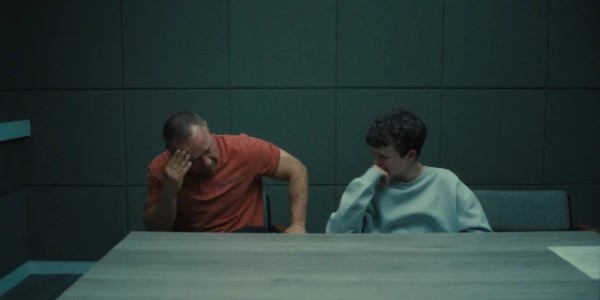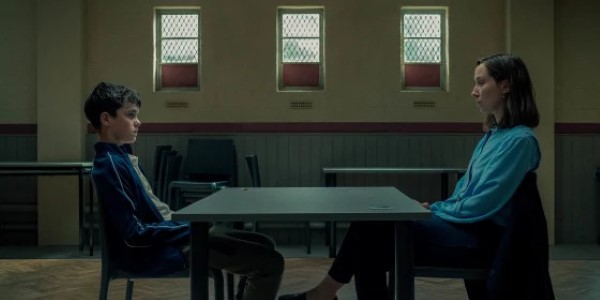I first learned about the Netflix miniseries Adolescence through a friend’s social media post. I got curious about the “one cam per episode” innovative storytelling as he put it, and I took a mental note of watching it later. It didn’t take long until a parent friend brought it up, the nudge I needed to finally start watching.
The entire story is told in four episodes around an hour each. But don’t underestimate this perceived brevity: every episode can get heavy and intense as it explores why 13-year-old Jamie Miller was arrested for suspected murder of his classmate Katie.
Right after each episode ends, I was conflicted whether to continue with the next or pause for a much-needed breathing space. As a parent and teacher, I urge you to not delay watching it. If there’s any “perfect” time to see it, it’s now.
Here’s why.

It’s uncannily close to home.
If the heavy accent of the actors won’t be a complete giveaway, Jamie’s story is set in England. It may be physically far away from home but the themes explored by the series knows no distance: cyberbullying, misogyny, male rage, and violence all intertwined with a teen’s sense of belongingness.

In the series, Katie was stabbed to death seven times. Any parent or guardian in any part of the world whose teen is accused would confront that with a huge denial. But just recently, a male student reportedly stabbed his female classmate to death right inside their own classroom here in the Philippines – and it’s frightening to think about how the events in the miniseries came alive. It’s here. It’s happening. Adolescence is as alive as it can be, right in our very own backyard.
We need to reflect on the kind of home we’re raising our kid in.
It doesn’t matter whether you’re a parent of a teen, a toddler, or a newborn at this moment. Adolescence will see you and touch you in ways so intimately it could still get unnerving days after you’ve finished watching it.
The series begins and ends with the Miller’s residence, a structure so familiar yet so eerily unfamiliar at the same time. The walls who lovingly observed Jamie’s growing up years were also the ones who witnessed his gruesome arrest. Home was where he communed with his parents in countless meals but it was also where he kept thoughts and feelings unbeknownst to the people who cared for him the most.
Adolescence asks us then: What kind of home are we raising our kids in? Are we still too afraid to hold difficult conversations with our kids? Do we call our kids out for the slightest mistake, or do we genuinely seek to understand? Are good grades and excellent school performance the only things that light us up? Are there only physical walls that divide the house, or there are figurative walls that block us from seeing more of our kids?
The series pleads with us parents to hear what’s not loud, and to find out what’s concealed right inside our homes.
We must know the right questions to ask our kids.
Detective Inspector Bascombe’s probe and Psychologist Briony Ariston’s interview with Jamie taught me at least two things: know the right questions to ask and know how to properly respond, especially when unexpected answers come. We parents are not “trained” to do so like detectives or psychologists – and admittedly this is where it gets really difficult – but this does not mean we’re not qualified to try. We are the first ones in the world tasked to know our kids, and to be able to get the answers we need, we must have established that we are their safe space.

Amidst the chaos of the morning arrest, Jamie and his father Eddie Miller had a few moments to themselves, where Eddie had a chance to ask the dreaded four-word question: “Did you do it?” No parent would want to be in his shoes, left with this very difficult question to ask.
Adolescence nudges parents to ask questions beyond, “How was your day?” It asks us to deeply know and understand our kids through questions such as: How do you view yourself? What is your stand on this issue? How will you respond to this? How do you view me as a parent? Is there anything else I can do for you that you think I haven’t done yet?
Our kids are capable of answering these questions, and must be given time to process big emotions so they won’t resort to threatening, hurting, or harming themselves and the people around them. With the right questions at the right time, they will provide the response that will allow us to get into their headspace.
We ask the difficult questions now, or not ever.
We are compelled to be more involved in our teen’s social media use.
One of the most glaring messages that Adolescence sent to parents is to never get tired of being involved in their teen’s social media use. It means not only constantly reminding them of their boundaries, but also really taking time to understand what they use it for and how they use it.
Social media use played a huge part in Adolescence as it does play a big part in real-world parenting, and it drilled on us parents that kids know how to send messages masked in codes, symbols, and enigmas, and we need to break the language barrier that sets us apart from our teens.
We need to keep the conversation going.
After watching the series, you may feel like you want more of their story. Your mind will somehow crave for “What happens next?”
The answer won’t be on screen anymore, as the end credits will roll like forever. But the story grips you in such a way you’ll never want to let go.
But that’s exactly the point. You’re part of the story. We’re all part of the story. We’re living it. So, what are we going to do next?
After watching Adolescence, we must keep the conversation going. Let’s continue to talk about the issues surrounding our teens, and we must never put our young boys aside just because they seem bright and okay and tough on the outside. In the series are parenting nightmares we are confronting right here, right now.
Adolescence does not point fingers at anyone in its beautifully told and crafted story. It’s an eye-opener, an important story that’s more than a trend, and a reference material we can go back to again and again. While it reveals that we can never give our 100% as parents, we’re also encouraged to arm ourselves with knowledge and recognize our power to do our part in putting in position lawmakers that will help us parent in the present world where homes and schools can be dangerous places for our kids to be in.
Watch the series now, and take part in the ongoing conversation. Adolescence is not just about Jamie and Katie. It’s about our kids, our parenting, our environment, and all the choices we make now.



